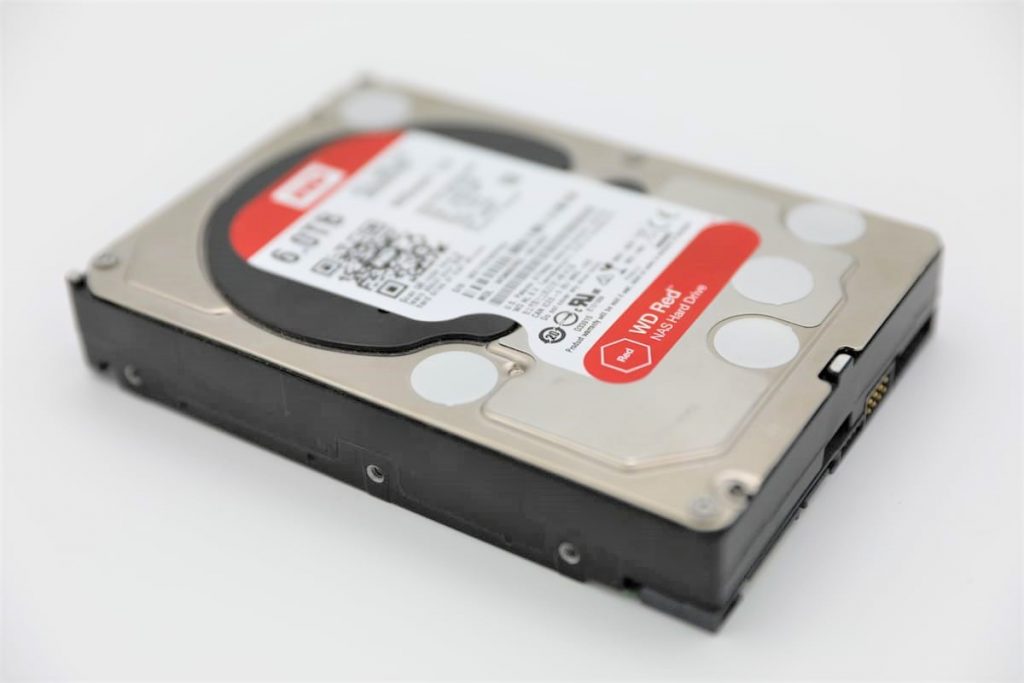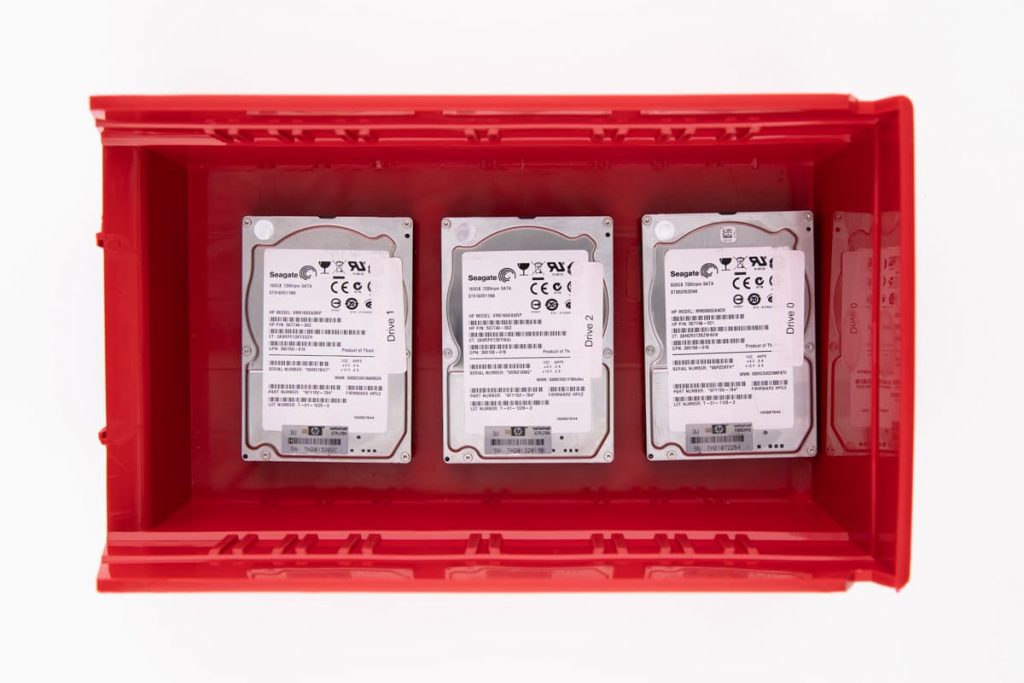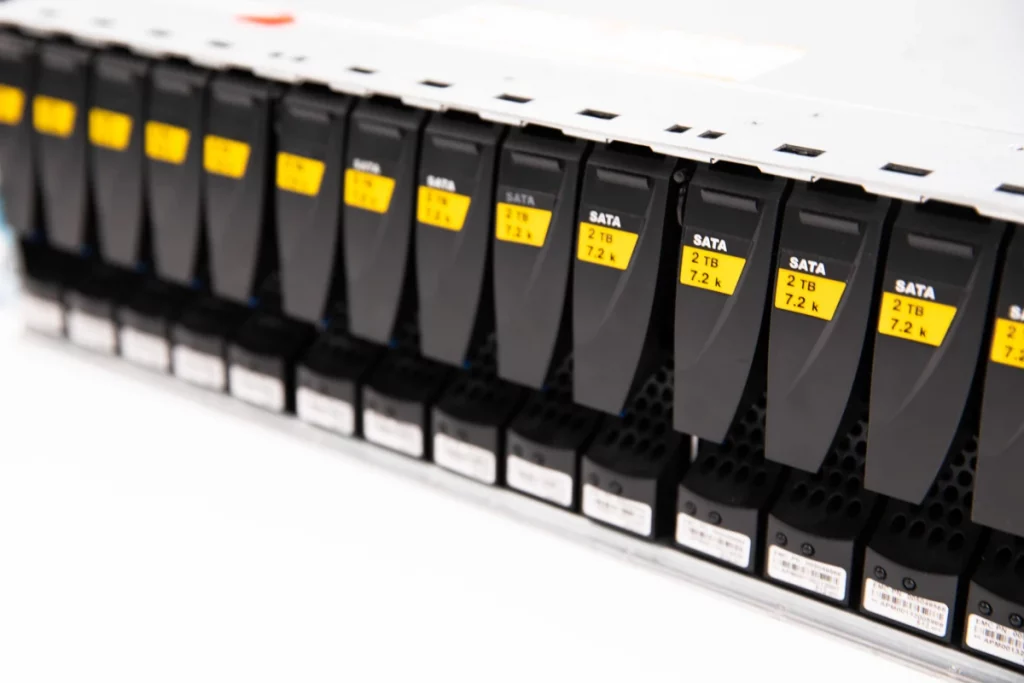An Enterprise Hard Disk Drive (HDD) is a storage device specifically created to meet the demanding requirements of large-scale business operations. These drives are commonly used in servers, NAS systems, SANs, and RAID configurations. They can handle heavy workloads and operate continuously without any issues.
Enterprise HDDs provide faster data transfer speeds and larger storage capacities than regular consumer-grade HDDs. Additionally, enhanced reliability makes them vital to data centers and corporate IT infrastructure.
What is an Enterprise HDD
An Enterprise Hard Drive is a highly effective storage device designed to meet the demanding requirements of large-scale business operations. Unlike regular hard drives in personal computers, enterprise hard drives are rarely used independently. Instead, they are essential parts of advanced data storage systems. Their superior speed, expanded storage capacity, and improved dependability ensure smooth operations in environments where data access, security, and integrity are paramount.
Features of Enterprise HDDs
- Enterprise HDDs typically have a faster spindle speed than consumer-grade hard drives, resulting in quicker data access and transfer.
- These drives have a larger cache size, which stores frequently accessed data to enable faster retrieval.
- Enterprise HDDs offer greater storage capacity than regular hard drives, making them suitable for storing large amounts of business data.

- They are designed with more durable components and undergo rigorous testing to ensure reliable, continuous operation.
- Advanced error correction techniques are employed to maintain data integrity and prevent loss or corruption.
- Power management features in enterprise HDDs enable more efficient energy usage and reduce heat generation.
How To Choose the Best Enterprise Hard Drive
When choosing the optimal enterprise hard drive, it is crucial to consider the distinct requirements of your business operations. Assess the drive’s storage capacity, speed, durability, and efficiency. Additionally, consider its compatibility with your current infrastructure and the technical support provided by the manufacturer. Keep in mind that the objective is not solely to find the most advanced drive but rather to find a drive that can effectively and dependably meet the specific data needs of your enterprise.

Popular Brands of Enterprise Hard Drives
Numerous reputable manufacturers produce enterprise hard drives of exceptional quality. Seagate, Western Digital, and Toshiba are well-known for their offerings in this sector. Seagate’s Exos series boasts high capacity and durability, ideal for demanding data center environments.
On the other hand, Western Digital’s Ultrastar series offers enterprise-class features like power efficiency and advanced error correction techniques.
Likewise, Toshiba’s MG Series is acclaimed for its high performance and cost-efficiency balance. While these brands are not exhaustive, they represent key players in the enterprise hard drive market. When selecting, thorough research, user reviews, and industry evaluations are crucial.
Despite careful selection and the reliability of enterprise hard drives, drive failures can still occur for various reasons. Power surges, excessive heat, mechanical failures, or firmware corruption can lead to malfunctions. Additionally, prolonged use in high-demand environments can gradually impact the drive’s lifespan. Therefore, it is important to have a strong data backup strategy and proactive drive health monitoring to mitigate the risks associated with drive failures, even when using top-tier enterprise hard drives.
Enterprise Hard Drive Failure - What to do?
Failure of enterprise hard drives in RAID systems, NAS enclosures, and servers can have devastating consequences. While RAID configurations provide redundancy to protect against drive failures, multiple simultaneous failures or a replacement drive failing during rebuilding can result in significant data loss. Similarly, NAS systems and servers rely on robust enterprise drives for their intensive operations. Drive failures in these systems can disrupt workflows, impact access to critical data, and potentially lead to substantial data loss if not properly handled.
In such situations, seeking professional assistance is crucial. Raid Recovery Services is a highly recommended solution for these scenarios. We have a team of skilled engineers and advanced tools for data recovery from various storage devices, including enterprise HDDs used in RAID systems, NAS enclosures, and servers.
Our track record of successful recovery operations, even in complex cases, makes them a reliable choice for enterprise data recovery.

Remember, when faced with enterprise drive failures, prompt action and involving professionals are key to maximizing data recovery chances and minimizing downtime.
Frequently Asked Questions
What is an enterprise-class hard drive?
An enterprise-class hard drive is a high-performance storage device built to handle heavy workloads and operate continuously in data-intensive environments such as data centers and large-scale business operations.
How does an enterprise hard drive differ from a regular hard drive?
An enterprise hard drive is built for continuous operation, featuring high storage capacities, faster spindle speeds, larger cache size, and advanced error correction techniques. On the other hand, regular hard drives are designed for less demanding operations, such as personal computing.
Why is an enterprise hard drive essential for large-scale businesses?
Such businesses often deal with large volumes of data that need to be accessed quickly and reliably. Enterprise hard drives are designed to meet these demanding requirements, ensuring smooth business operations and data security.
What should you do in case of an enterprise hard drive failure?
In case of a failure, it’s crucial to seek professional assistance promptly. Companies like Raid Recovery Services have the skills and tools to recover data from enterprise hard drives effectively.
What factors should be considered while choosing an enterprise hard drive?
Key considerations include the drive’s storage capacity, speed, durability, and compatibility with your existing infrastructure. You should also consider the technical support provided by the manufacturer and the drive’s energy efficiency.